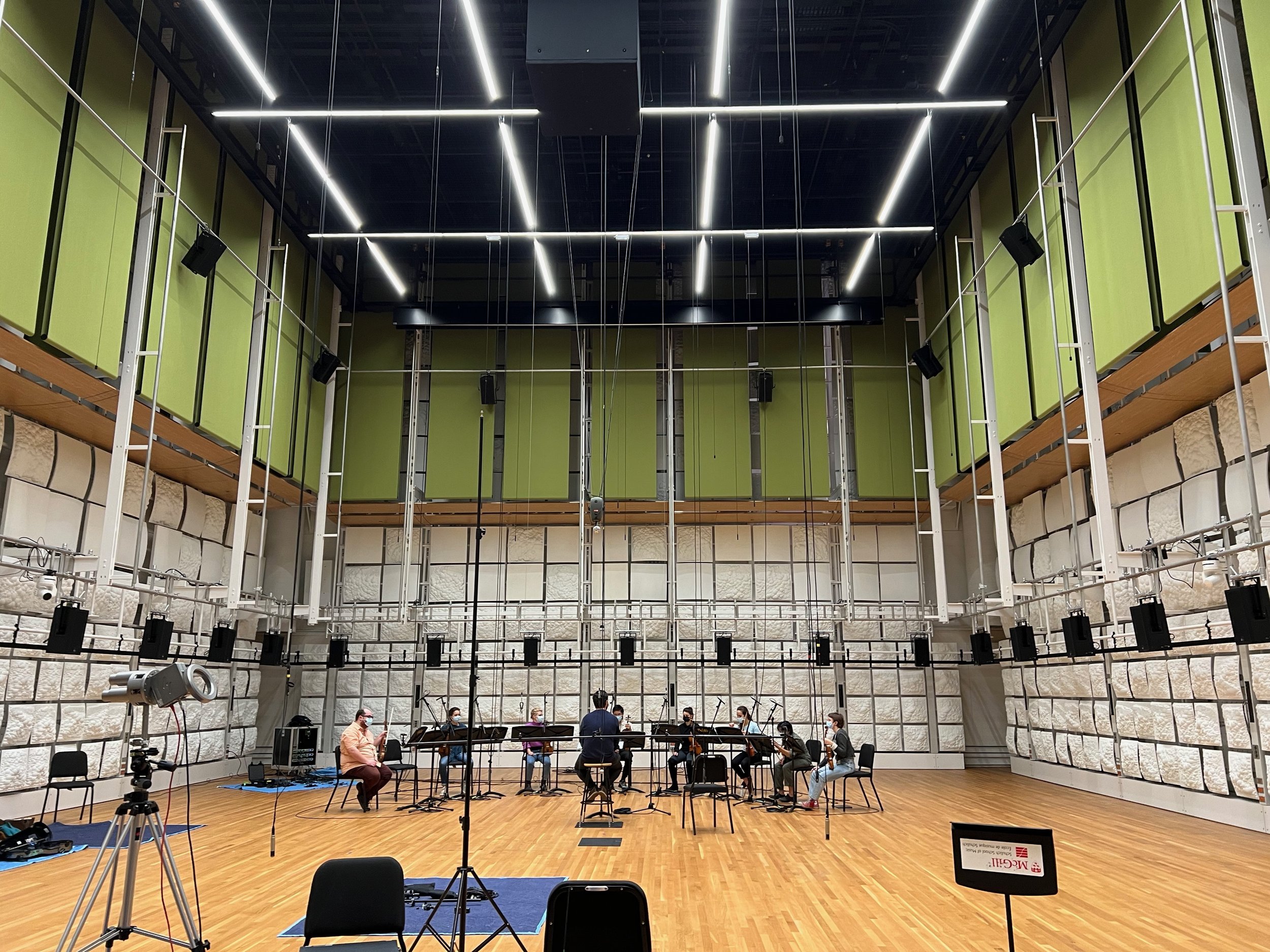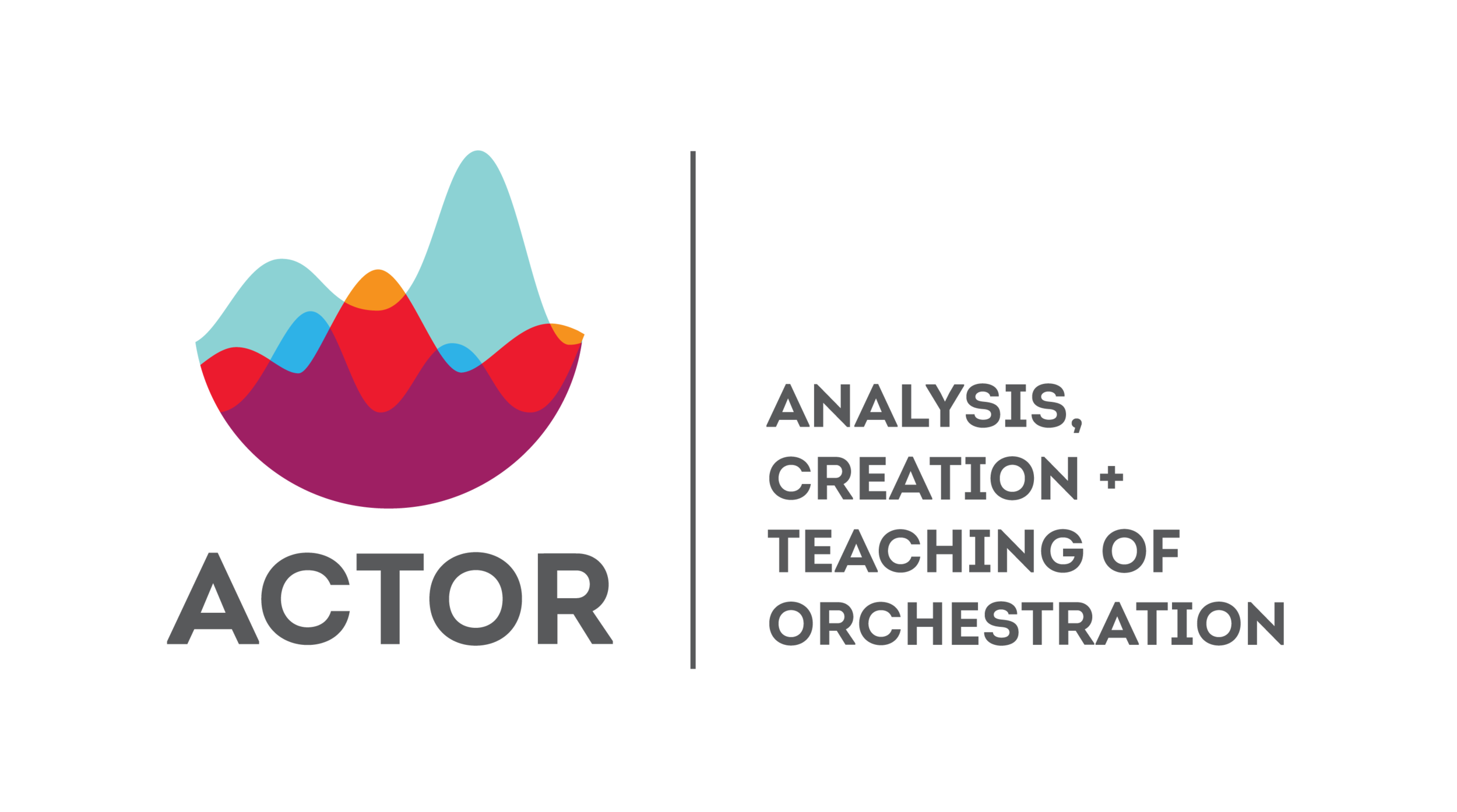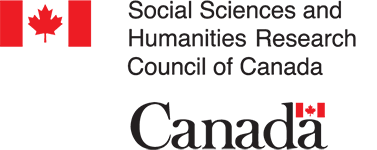
ACTOR
Timbre and Orchestration
Summer School
EN | FR
About
The Analysis, Creation, and Teaching of Orchestration (ACTOR) Project is pleased to announce its third Timbre and Orchestration Summer School (TOSS 2025), scheduled for June 3-7 at McGill University in Montréal, QC, Canada. This edition will be linked with the Timbre and Orchestration in Popular Song (TOPS) Conference, see below for more details.
Following the success of previous editions, TOSS 2025 continues to explore the multifaceted world of timbre and orchestration research, encompassing musicology, history, music theory, composition, cognitive neuroscience, and acoustics. This program targets graduate students (and advanced undergraduates), postdoctoral researchers, and early-career scholars involved in music-related research who have a strong interest in timbre and orchestration. The January 12th, 2025 application deadline has passed, but please apply to the wait list if interested.
Schedule
All events are held in the Elizabeth Wirth Music Building (527 Sherbrooke St. West) unless specified. Our meeting room is on the 8th floor (Room A-832/833), and there will be numerous McGill folks among us to show you the way if you’re lost!
Monday, June 2
Evening: informal event for those who have already arrived in Montreal. We will communicate details on the TOSS Slack channel closer to the date.
Tuesday, June 3
8h30 - 9h30: Breakfast and opening remarks
9h30 - 12h30: Tutorial 1 (John Rea)
12h30 - 13h30: Lunch (served on site)
13h30 - 16h30: Tutorial 2 (Lori Burns)
17h00 - 18h00: McGill Campus Tour (led by Kelsey Lussier and Jade Roth)
18h00: Reception at Thomson House (3650 McTavish St.)
Wednesday, June 4
8h30 - 9h30: Breakfast
9h30 - 12h30: Tutorial 3 (Eliot Britton)
12h30 - 13h30: Lunch (served on site)
13h30 - 16h30: Tutorial 4 (Johanna Devaney)
16h30 onward: Picnic at Jeanne-Mance Park followed by a leisurely stroll up Mt. Royal to the Belvedere Lookout. There are plenty of grocery stores nearby and we will help facilitate sharing picnic foods among the group. Picnics at Jeanne-Mance are a quintessential Montreal activity!
June 5–7
As we are joining forces with the Timbre and Orchestration in Popular Song (TOPS) Conference for these three days, the schedule will be posted on the TOPS website at www.mcgill.ca/tops2025/schedule
Here’s a map of the area with all our destinations and other useful spots marked.
Tutorials
Expressive Intersections of Song Structure, Performance, and Sound
Lori Burns (University of Ottawa)
For this topic, we will study how voices and instruments occupy sonic space in a range of popular music examples. With analytic attention to musical forms, we will address elements of sound quality, articulation, intensity, and density in relation to the sonic space of recorded music.
Orchestration, The Art Of
John Rea (McGill University)
This tutorial focuses on praxis-infused musings, along with theory-informed thinking, about conditions and tasks framing orchestrations. It will consider “doing orchestration” a know-how that turns less to timbral recipes and more to an art (among the Arts) imbued with compositional acts. Repertories include contemporary works as well as popular music.
Acoustic Correlates of Timbre
Johanna Devaney (Brooklyn College and the Graduate Center, CUNY)
This workshop will provide an introduction to the acoustic correlates of timbre, with a particular focus on the singing voice. It will cover both theoretical aspects and practical applications. The theoretical component will survey the types of acoustic descriptors that can be reliably estimated from audio and how they relate to auditory perception. The practical component will explore how both GUI and coding-based tools can be used for audio analysis of timbre.
Balancing Workflow and Creative Process:
Timbral Design through Orchestration and Post-Acousmatic Techniques
Eliot Britton (McGill University)
Managing large-scale, timbrally diverse projects that integrate rich media, ensemble limitations, and contemporary engraving techniques can feel daunting, particularly as the duration and required forces of a work expand. Successfully balancing aesthetic priorities, creative processes, and antifragility within the resulting framework demands meticulous planning. This workshop will leverage firsthand experience in developing touring orchestra and chamber works with live electronics, alongside relevant papers and repertoire examples. It will cover the following topics:
Computer-assisted workflows, including software tools and their aesthetic implications, for managing orchestration, synchronization, and timbre.
Practical integration of post-acousmatic techniques in the creative application of timbre and orchestration.
Workshops
Instrumental Timbre and Texture in Popular Song
Megan Lavengood (George Mason University)
This workshop investigates instrumental timbre and texture in popular song, building on the approaches of Moore (2012) and Lavengood (2020, 2021) to explicate relationships between an instrument's timbral qualities and its role within the larger texture. By bringing attention to various marginalized subgenres of popular music (e.g., rap, EDM), we will also scrutinize the assumptions that underlie existing definitions of popular-music terms and analytical models.
Music Industry Applications of Timbral Analysis
Claire McLeish (Third Side Music)
This workshop explores applications of timbral analysis in the music industry. Musicologists, music theorists, and legal professionals regularly perform timbral analyses to determine whether or not a recording has been used, or if the material has been re-recorded in the studio. Music copyright affords different protections for recordings and compositions, so these analyses have real-world legal and monetary ramifications. In order to determine whether or not pre-existing recordings were used, attendees will listen for details such as micro-timing, orchestration, audio artifacts, and production techniques (such as signal processing and spatialization).
Encoding and Analyzing the Timbre in Popular Song (TiPS) Corpus
Nicole Biamonte (McGill University) and Lindsey Reymore (Arizona State University)
This workshop discusses aspects of constructing, encoding, and analyzing the Timbre in Popular Song (TiPS) corpus. We will present some initial results of the study, explain our encoding system of multiple variables specifying different aspects of timbre and texture, demonstrate encoding a pair of related songs (an original recording and a cover version), discuss the categories of variables, and consider potentially ambiguous or conflicting interpretations. Participants will gain experience with timbral, textural, and formal analysis as well as the issues surrounding corpus construction.
What People Are Saying
“I had the opportunity to attend TOSS 2023 in Thessaloniki and TOSS 2024 in Vancouver. Both events were well organized and featured a variety of speakers from different academic backgrounds converging on the study of timbre and orchestration. I remember the session by Lindsey Reymore and Zachary Wallmark on timbre semantics in 2023 that impressed me the most because I had some realizations about how we communicate timbre that I was previously unaware of. In this year’s summer school, I really enjoyed Micheal Tenzer’s session on the ethnomusicology of orchestration, which reminded me again how expansive the view of timbre can or must be. Besides the tutorial sessions, the exchange with other timbre nerds was an absolute highlight of TOSS, and I can only recommend anyone who falls or wants to fall into this category to participate in the upcoming iterations of the format!”
“I've been with the ACTOR project from the very beginning, studying timbre and orchestration from various angles, but the TOSS workshops always find a way to surprise me and offer something new. One example from TOSS 2024 was the timbral composition exercise from Prof. Anthony Tan which we did as small groups. It was a quick, compelling demonstration, was a lot of fun, and got the participants to exchange their ideas and understanding about timbre in a very effective way. Also, the music that each group made was fascinating. I'll definitely keep this exercise in my toolbox for myself and for when I teach these topics.”
“Academic work, especially at the graduate level, can often feel quite solitary. Coming to TOSS in Vancouver reminded me of how exciting and engaging it is to learn, discuss, and interact in a group setting. One of the aspects that made this possible was a distinct lack of elitism. Often times academia has the unfortunate reputation of having a condescending gatekeeper culture, but I saw none of that here. Instead, there was curiosity, generosity, and spirited debate. Throughout the event, it was clear that everyone was coming with their own expertise and background, and it felt like a place to share our common knowledge and inspire each other. Working in small groups was a throwback to some of my undergraduate classes and it really created an atmosphere of camaraderie. So much so that it was sad to say goodbye. I would strongly recommend coming to TOSS if you have the opportunity!”

The Venue
McGill University's Schulich School of Music stands as a world-class institution for music education and research. With particular strengths in orchestral performance, opera, jazz, historical performance practice, and modern composition, the school has earned international recognition. The school's cutting-edge facilities and expertise in audio recording and music technology create unique bridges between academic study and professional practice. The vibrant community consists of more than 800 students who choose Schulich for its distinguished faculty of over 200 professors, numerous performance ensembles, abundant concert opportunities, and innovative programs combining musical tradition with technological advancement.
The Centre for Interdisciplinary Research in Music Media and Technology (CIRMMT), located within the school of music, is a globally recognized hub for interdisciplinary research at the crossroads of music, science, and technology. It provides state-of-the-art facilities and fosters collaboration among scholars and practitioners,

Timbre and Orchestration in Popular Song (TOPS)
Timbre and orchestration are essential aspects of musical experience in any culture or style. They enable us to effortlessly identify different genres of music and are particularly important in popular musics. This centrality is reflected in Timbre and Orchestration in Popular Song (TOPS), a three-day conference hosted by McGill University's Schulich School of Music and the ACTOR (Analysis, Creation and Teaching of Orchestration) Partnership. The conference convenes scholars, producers, performers, and audiences of popular music for keynote lectures, workshops, posters, papers, and roundtable discussions, united under the theme of how timbre and orchestration give rise to critical and analytical accounts of genre, identity, performance, production, and perception. The conference features keynote presentations by Nina Sun Eidsheim (UCLA) and Kevin Holt (SUNY Stony Brook).
Apply
How to apply:
Interested participants are required to submit the following materials via the online application form:
In 200 words, please explain why you are interested in attending TOSS 2025.
CV, maximum two pages
If interested in a poster session, a 200-word (max.) abstract
Important dates:
January 12th, 2025: Extended Application deadline
January 15, 2025: Notification of selected applicants
January 15, 2025: Registration opens
February 15, 2025: Deadline to submit draft of poster (if planning to present one during TOPS)
April 1, 2025: Registration deadline
Costs
Accepted participants will be invited to register as of January 15. Registration fees are:
* all amounts in CAD | See the refund policy below
Option 1 - $870: $720 (TOSS) + $150 (TOPS). This includes tuition, lunches on June 3–7, dinner June 7, and single-room accommodation (June 2–8) with breakfast included, as availability permits
Option 2 - $396: $246 (TOSS) + $150 (TOPS). This includes tuition and lunches on June 3–7, and dinner June 7
NOTE: TOSS participants must also register to TOPS in order to access the activities on Days 3, 4, and 5 of TOSS.
Registration
For those who have received an acceptance notification, please follow the links below to complete the payment of the registration fee for TOSS and TOPS. TOPS participants should choose the reduced rate ($150). Note that it will not be possible to arrange refunds to those who register erroneously.
If you wish to withdraw from the school after having registered and paid, you can request a full or partial refund depending on the date of your request, per the chart below. To withdraw, please contact actor-project.music@mcgill.ca with your request.
| Refund Request | Refunded Amount (CAD) | |
|---|---|---|
| Option 1 | Option 2 | |
| On or before 1 March | $870 (full refund) | $396 (full refund) |
| On or before 1 April | $610.34 | $136.34 |
| On or before 1 May | $116.34 | $116.34 |
| After 1 May | No refund | No refund |
Partners and Funding
















